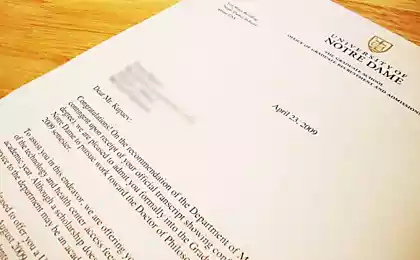820
11 best non-English language universities in the world
Traditionally in the world rankings of universities are leading institutions from the US and the UK: Harvard, Oxford, Cambridge, Caltech, MIT, Stanford. These countries, with small patches of Canada and Australia, to fill a large part of the first hundred of any rating, whether Times Higher Education, QS or Shanghai (aka ARWU). But in recent years their positions have increasingly strengthened the universities of Singapore and South Korea and some universities from continental Europe and even the Middle East. So, in ranking THE (Times Higher Education), one of the oldest and most prestigious (along with QS and Shanghai), published on 1 October, middle East technical University (Turkey) first entered the first hundred, up from 200 places on 85. Russian universities such spikes did not, but MSU Lomonosov finally made it to the main part of the rating (up to 200-th position), taking 196th place.
11 the most interesting and promising universities from non-English speaking countries — in the gallery Forbes.
ETH Цюриха
Name: Eidgenössische Technische Hochschule Zürich
City: Zurich (Switzerland)
Year established: 1855
The rating: THE — 13, QS — 12, Shanghai — 19
Tuition fees: 16 000 francs (about €13 200) per year (including accommodation and living expenses)
The language of instruction (other than English): German
The ETH Zurich for many years, is the highest-rated University in continental Europe for five years it never fell below the 15th position in the ranking. This University specializiruetsya on technology and natural Sciences, teaching more than 18,000 students from over 110 countries, and 70% of professors at the Swiss graduate school of Zurich was hired from abroad.
Other Swiss universities, however, slightly behind. Federal Polytechnic school of Lausanne occupies in the ranking of THE 34-th place (within five years it slightly, but consistently improved their performance: in 2010, the year the University held a 48-line), and 17th in QS and in a hundred of the Shanghai ranking also includes the University of Zurich, University of Geneva and University of Basel.
Tokyo университет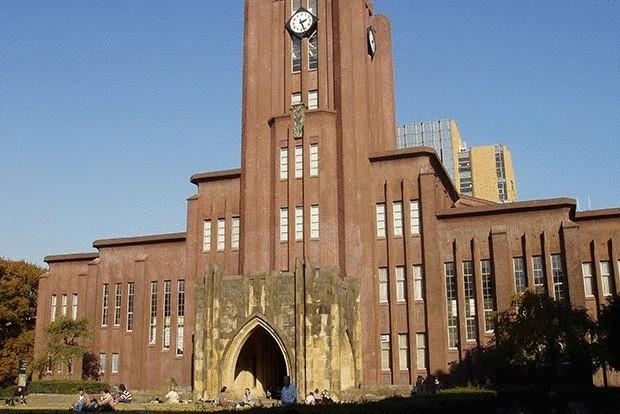
Title: the University of Tokyo
City: Tokyo (Japan)
Year established: 1877
The rating: THE — 23, QS — 31, the Shanghai — 21
Tuition fees: from 535 800 yen (almost €3 900) per year excluding exams, income and daily expenditures.
The language of instruction (other than English): Japanese
Experts say that Japanese education is stagnant, but so far the ratings are not displayed: the University of Tokyo for that year shows very good results in Asia, the Shanghai ranking and THE best in the region. The University educates 28,000 students, of which slightly less than 3000 foreigners. At the time, graduated from the University writers Kobo Abe, ryunosuke Akutagawa, Yukio Mishima, as well as numerous Japanese politicians, including Prime Ministers, and eight Nobel laureates or fields medals.
In the first hundred in addition to Tokyo from THE Japanese universities only includes Kyoto University (59th place), but in QS, where the Kyoto University comes on the heels of Tokyo (36th place), high positions in the University of Osaka (55), Tohoku University (71) and the Tokyo Institute of technology (68). In the first hundred of the Shanghai ranking presents the University of Tokyo, Kyoto University (26th place) and Osaka University (78th place).
National University Сингапура
Name: National University of Singapore (NUS)
City: Singapore
Year of Foundation: 1905
The rating: THE — 25, QS — 22, Shanghai — 101-150 (more accurate data freely available there)
Tuition fees: from 15 to 700 Singapore dollars (€9750) without taking into account everyday expenses
The language of instruction (other than English): Chinese
Singapore is one of the most powerful economies of Asia; the city-state for several decades overcoming his corruption and became the largest technology center. Of course, the success of Singapore affect the quality of education: national University ranks in the top 25 two of the three ratings (Shanghai ranking, among other things, takes into account Nobel prize winners, causing the indicators to some universities can vary significantly), and Nanyang technological University is in the top 100. In this Nanyang technological University for five years in the ranking rose more than 100 points: from 174 to 61. In QS he got 39th place (compared to 58-m five years ago).
However, technically, Singapore is not true for non-English speaking countries: along with Chinese, Tamil and Malay, English in this town is the official language.
University of Munich Ludwig-Максимилиана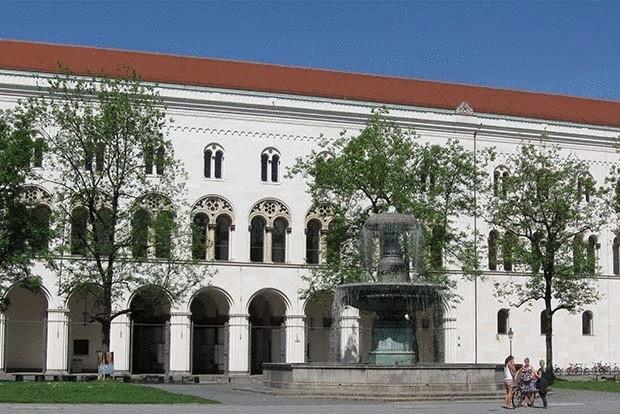
Name: Ludwig-Maximilians-Universität München
City: Munich (Germany)
Year established: 1472
The rating: THE — 29, QS — 52, Shanghai — 49
Tuition fee: free; University advises laying around €800-1000 per month for accommodation and living expenses.
The language of instruction (other than English): German
In the latest ratings for THE Germany — unconditional European triumphant. Munich University has risen to 29th place with the 55th in the top 200 finally entered the University of tübingen and Technical University of Dresden, thus making the Germans third in the number of universities after the USA and the UK. Previously, this honor was awarded to the Netherlands. In the top 100 included THE six German universities in top-100 QS — three in the top 100 of the Shanghai ranking — four, with the years their position strengthened.
Higher education in Germany is completely free, including for foreigners, and the cost of living is low compared to other equally developed European countries. Together with the confirmed ratings of the quality of education that makes it one of the most attractive countries for students.
Karolinska институт
Name: Karolinska Institutet
City: Stockholm (Sweden)
Year of construction: 1810
The rating: THE — 44, QS — not included due to the narrow specialization, the Shanghai — 47
Price: from 165 thousand Swedish kronor (€18135) per year for EU citizens — free
The language of instruction (other than English): Swedish
Karolinska Institute is one of the best medical universities of Europe and the world; the Committee appoints the Nobel laureates in physiology and medicine. Six Nobel laureates graduated from this University. The Institute trains more than 6,000 students and is engaged in various research in the field of medicine.
In General prosperous Scandinavian countries are not enough stars in the sky, but show very good results, stable for several years. In Sweden in the top 100 of all three rankings included the University of Uppsala, Danish universities Copenhagen and Aarhus are in the top 100 of the Shanghai and QS, of THE placed in the top 200, in Norway, finally, the University of Oslo was awarded the 69th lines in the ARWU top 200 in the QS and THE.
Seoul national университет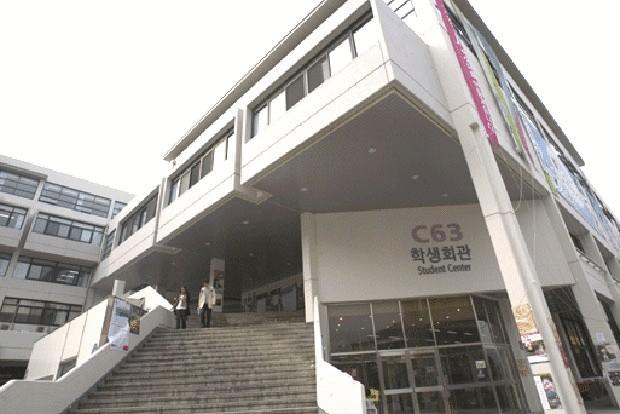
Title: Seoul National University
City: Seoul (South Korea)
Year of Foundation: 1946
The rating: THE — 50, QS — 31, the Shanghai — 101-150 (more accurate data freely available there)
Training cost: 5 million won (€3700) a year excluding accommodation and everyday expenses
The language of instruction (other than English): Korean
South Korean universities, without doubt, the future of higher education and science. Seoul national University for five years has risen from 109th position in the ranking of THE 50-th line. Other South Korean universities from the top 100 to show less impressive results: a leading Korean scientific-technical Institute of the rose in the ranking from 79 to 52 in the rankings over five years (QS — c 90 51-e), and Poganski University of science and technology — has fallen from 28 to 66th in THE and rose from 98 to 86 in e QS.
However, one must keep in mind that against the background of European, American, Japanese and even Chinese universities with their more than hundred years of history, South Korean universities are very young (this partially explains their absence in the top 100 of the Shanghai ranking). Even the Sungkyunkwan University (140th place in QS, 148-e in THE), founded in 1398 and was reorganized in 1895, actually traces its modern history only from 1946. Korea University, leading its history since 1905, the year, the best result shows in the QS: 116-e a place. Five years ago it occupied only the 190-th position.
Leuven Catholic университет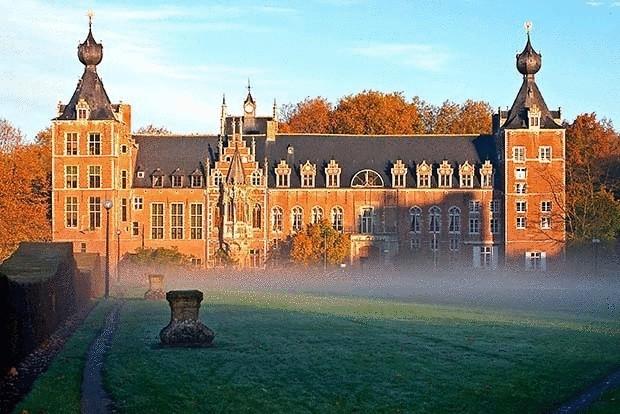
Name: Katholieke Universiteit Leuven
City: Leuven (Belgium)
Year established: 1425
The rating: THE — 55, QS — 83, Shanghai — 96
Tuition fees: from €620
The language of instruction (other than English): Dutch
Catholic University of Leuven traces its modern history since 1970, when the old University was divided into Walloon and Flemish parts. The University has over 40,000 students, including nearly 7000 foreigners. In five years, the Catholic University of Leuven rose from 119th place to 55th in the ranking. In addition, this year he first entered the top 100 of the Shanghai ranking.
Walloon him "brother," the Catholic University of Louvain, in the Shanghai ranking 101-150-th position in the QS — 154-th place, and in THE — 171-E. Main competitor of the University of Leuven in Belgium, University of Ghent (also located in the Flemish part of the country) for five years, has risen in the rankings from 124 in THE 90th place in the QS — from 165 to 129.
Polytechnic school, Франция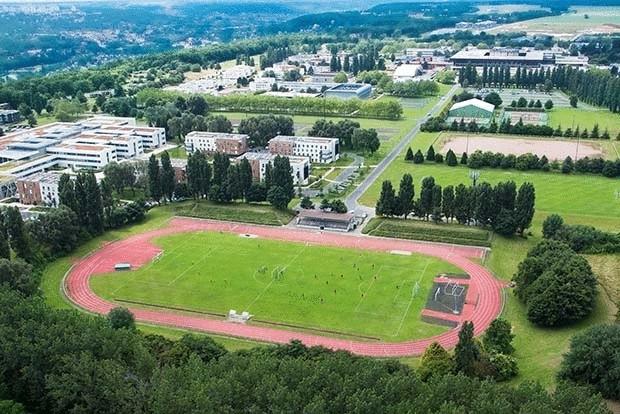
Title: École Polytechnique
City: Paris (France)
Year of construction: 1794
The rating: THE — 61, QS — 35, Shanghai — 301-400 (more accurate data freely available there)
Tuition fee: €4000 per year for citizens of countries outside the EU; there is a flexible system of scholarships and grants
The language of instruction (other than English): French
The école Polytechnique from its inception focused on training of engineers. Most of its strengths — mathematics, technology and science. The school accepts or participated in the development of high-speed TGV trains, famous aircraft Concorde and Airbus, the standard of mobile communication GSM and not only. Among the famous graduates of the school — the philosopher Auguste Comte and mathematics, Henri poincaré.
In addition to the Polytechnic school, consistently high results shows the Higher normal school of Paris: 24-th place in the ranking 78th in THE place and 67th in the Shanghai ranking. Higher normal school taught by Jean-Paul Sartre, Michel Foucault and Jacques Derrida. Graduates from other States have the right summarily to obtain French citizenship.
Leiden университет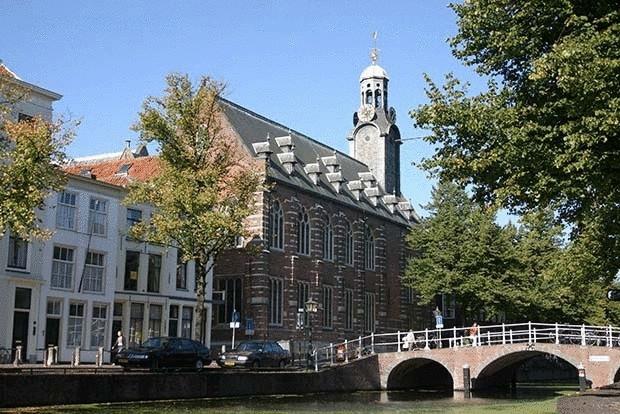
Name: Universiteit Leiden
City: Leiden (Netherlands)
Year of establishment: 1575
The rating: THE — 64, QS — 75, Shanghai — 77
Tuition fees: from €11 100 for citizens of countries outside the EU (with the exception of Suriname)
The language of instruction (other than English): Dutch
Netherlands is the largest center of English-language education (almost all master programmes are taught in English) in continental Europe; for a long time this country had the most universities (after the USA and UK) in the top 200 of the ranking THE. Despite the fact that by this measure the Dutch ahead of the Germans this year, representative of the Netherlands is still very impressive. The University of Leiden for five years in the ranking has risen from 124 th to 64-th line.
In addition to the University of Leiden, in the first hundred of all three rankings included the University of Utrecht (THE — 79, QS — 80 Shanghai — 57). The universities of Amsterdam, Groningen, Maastricht, vu University of Amsterdam, Delft technical University and Rotterdam Erasmus University consistently ranks in the top 200 in international rankings.
Middle East technical университет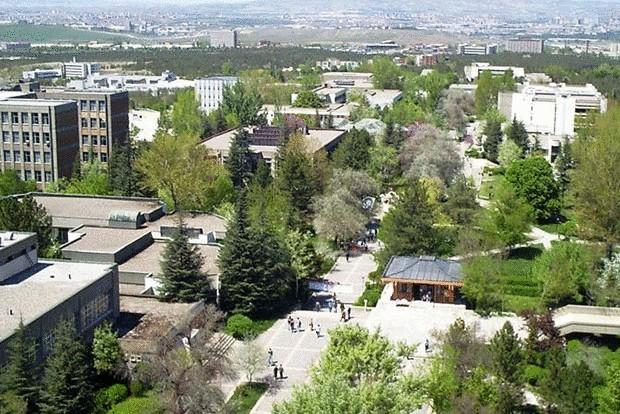
Name: Middle East Technical University
City: Ankara (Turkey)
Year established: 1956
The rating: THE — 85, QS — 401-410, Shanghai's ranking is not included
The cost of education from 1924 Turkish liras (€670) per year for foreigners
The language of instruction (other than English): Turkish
Middle East technical University for the first time was in the top 100 international ranking in THE early he did not rise above 183 positions, and in the QS best result of the Turkish University remains 401-410. The largest contribution to the high position of the University contributed a large percentage of citations of scientific papers, although the University has improved and other indicators, consider THE — internationality (education in middle East technical University is in English), cooperation with third-party companies, the atmosphere for learning and the volume and quality of research conducted by the University.
The generally very sympathetic to the Turkish universities: if in the Shanghai ranking, they do not include, and QS in the best case are located in the fourth hundred, at THE Bogazici University occupies 139-th position, Istanbul technical University — 165-Yu, a University Sabanci — 182-Yu.
Moscow state University. M. V. Ломоносова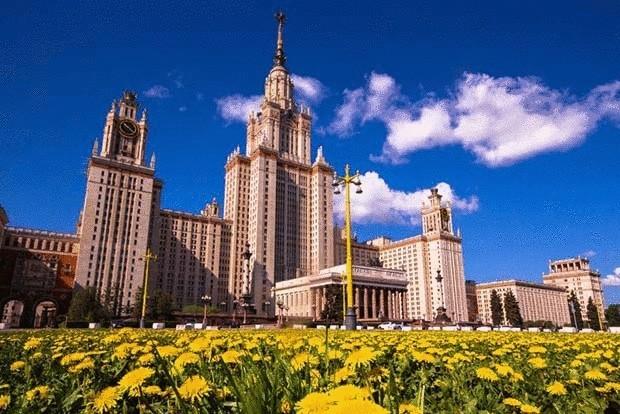
Name: Moscow state University. M. V. Lomonosov
City: Moscow (Russia)
Year established: 1755
The rating: THE — 196, QS — 114, the Shanghai — 84
Tuition fee: depends on the faculty; as a rule, about 325 000 per year
Language of teaching: Russian
In 2013, Vladimir Putin issued a decree according to which by 2020, year in the top 100 rankings of international universities must include 5 Russian universities; for that multiple universities have issued additional funding and has developed a special program of increase of competitiveness of the "5 top 100". For such a short time, of course, the program has not brought results: MSU remains the only Russian University in the top 100 or even top 200 of the main ratings. Behind him is Saint-Petersburg state University, 232-th place in the ranking 301-400 Shanghai and outside the top 400 in THE.
Of part of the program of increasing the competitiveness of universities has improved his position, Novosibirsk state University (for the first time entered the top-400 THE; 328 th to 350 th year ago in QS), Moscow Institute of physics and technology (411-420 against 441-450 year ago in QS), MEPhI (included in the top 500 QS), Tomsk state University (491-500 against 551-600 a year ago in QS), Kazan (Volga region) Federal University (551-600 601-650 against). A number of universities, however, their positions lost.
источник:forbes.ru
Source: /users/1077
11 the most interesting and promising universities from non-English speaking countries — in the gallery Forbes.
ETH Цюриха

Name: Eidgenössische Technische Hochschule Zürich
City: Zurich (Switzerland)
Year established: 1855
The rating: THE — 13, QS — 12, Shanghai — 19
Tuition fees: 16 000 francs (about €13 200) per year (including accommodation and living expenses)
The language of instruction (other than English): German
The ETH Zurich for many years, is the highest-rated University in continental Europe for five years it never fell below the 15th position in the ranking. This University specializiruetsya on technology and natural Sciences, teaching more than 18,000 students from over 110 countries, and 70% of professors at the Swiss graduate school of Zurich was hired from abroad.
Other Swiss universities, however, slightly behind. Federal Polytechnic school of Lausanne occupies in the ranking of THE 34-th place (within five years it slightly, but consistently improved their performance: in 2010, the year the University held a 48-line), and 17th in QS and in a hundred of the Shanghai ranking also includes the University of Zurich, University of Geneva and University of Basel.
Tokyo университет

Title: the University of Tokyo
City: Tokyo (Japan)
Year established: 1877
The rating: THE — 23, QS — 31, the Shanghai — 21
Tuition fees: from 535 800 yen (almost €3 900) per year excluding exams, income and daily expenditures.
The language of instruction (other than English): Japanese
Experts say that Japanese education is stagnant, but so far the ratings are not displayed: the University of Tokyo for that year shows very good results in Asia, the Shanghai ranking and THE best in the region. The University educates 28,000 students, of which slightly less than 3000 foreigners. At the time, graduated from the University writers Kobo Abe, ryunosuke Akutagawa, Yukio Mishima, as well as numerous Japanese politicians, including Prime Ministers, and eight Nobel laureates or fields medals.
In the first hundred in addition to Tokyo from THE Japanese universities only includes Kyoto University (59th place), but in QS, where the Kyoto University comes on the heels of Tokyo (36th place), high positions in the University of Osaka (55), Tohoku University (71) and the Tokyo Institute of technology (68). In the first hundred of the Shanghai ranking presents the University of Tokyo, Kyoto University (26th place) and Osaka University (78th place).
National University Сингапура

Name: National University of Singapore (NUS)
City: Singapore
Year of Foundation: 1905
The rating: THE — 25, QS — 22, Shanghai — 101-150 (more accurate data freely available there)
Tuition fees: from 15 to 700 Singapore dollars (€9750) without taking into account everyday expenses
The language of instruction (other than English): Chinese
Singapore is one of the most powerful economies of Asia; the city-state for several decades overcoming his corruption and became the largest technology center. Of course, the success of Singapore affect the quality of education: national University ranks in the top 25 two of the three ratings (Shanghai ranking, among other things, takes into account Nobel prize winners, causing the indicators to some universities can vary significantly), and Nanyang technological University is in the top 100. In this Nanyang technological University for five years in the ranking rose more than 100 points: from 174 to 61. In QS he got 39th place (compared to 58-m five years ago).
However, technically, Singapore is not true for non-English speaking countries: along with Chinese, Tamil and Malay, English in this town is the official language.
University of Munich Ludwig-Максимилиана

Name: Ludwig-Maximilians-Universität München
City: Munich (Germany)
Year established: 1472
The rating: THE — 29, QS — 52, Shanghai — 49
Tuition fee: free; University advises laying around €800-1000 per month for accommodation and living expenses.
The language of instruction (other than English): German
In the latest ratings for THE Germany — unconditional European triumphant. Munich University has risen to 29th place with the 55th in the top 200 finally entered the University of tübingen and Technical University of Dresden, thus making the Germans third in the number of universities after the USA and the UK. Previously, this honor was awarded to the Netherlands. In the top 100 included THE six German universities in top-100 QS — three in the top 100 of the Shanghai ranking — four, with the years their position strengthened.
Higher education in Germany is completely free, including for foreigners, and the cost of living is low compared to other equally developed European countries. Together with the confirmed ratings of the quality of education that makes it one of the most attractive countries for students.
Karolinska институт

Name: Karolinska Institutet
City: Stockholm (Sweden)
Year of construction: 1810
The rating: THE — 44, QS — not included due to the narrow specialization, the Shanghai — 47
Price: from 165 thousand Swedish kronor (€18135) per year for EU citizens — free
The language of instruction (other than English): Swedish
Karolinska Institute is one of the best medical universities of Europe and the world; the Committee appoints the Nobel laureates in physiology and medicine. Six Nobel laureates graduated from this University. The Institute trains more than 6,000 students and is engaged in various research in the field of medicine.
In General prosperous Scandinavian countries are not enough stars in the sky, but show very good results, stable for several years. In Sweden in the top 100 of all three rankings included the University of Uppsala, Danish universities Copenhagen and Aarhus are in the top 100 of the Shanghai and QS, of THE placed in the top 200, in Norway, finally, the University of Oslo was awarded the 69th lines in the ARWU top 200 in the QS and THE.
Seoul national университет

Title: Seoul National University
City: Seoul (South Korea)
Year of Foundation: 1946
The rating: THE — 50, QS — 31, the Shanghai — 101-150 (more accurate data freely available there)
Training cost: 5 million won (€3700) a year excluding accommodation and everyday expenses
The language of instruction (other than English): Korean
South Korean universities, without doubt, the future of higher education and science. Seoul national University for five years has risen from 109th position in the ranking of THE 50-th line. Other South Korean universities from the top 100 to show less impressive results: a leading Korean scientific-technical Institute of the rose in the ranking from 79 to 52 in the rankings over five years (QS — c 90 51-e), and Poganski University of science and technology — has fallen from 28 to 66th in THE and rose from 98 to 86 in e QS.
However, one must keep in mind that against the background of European, American, Japanese and even Chinese universities with their more than hundred years of history, South Korean universities are very young (this partially explains their absence in the top 100 of the Shanghai ranking). Even the Sungkyunkwan University (140th place in QS, 148-e in THE), founded in 1398 and was reorganized in 1895, actually traces its modern history only from 1946. Korea University, leading its history since 1905, the year, the best result shows in the QS: 116-e a place. Five years ago it occupied only the 190-th position.
Leuven Catholic университет

Name: Katholieke Universiteit Leuven
City: Leuven (Belgium)
Year established: 1425
The rating: THE — 55, QS — 83, Shanghai — 96
Tuition fees: from €620
The language of instruction (other than English): Dutch
Catholic University of Leuven traces its modern history since 1970, when the old University was divided into Walloon and Flemish parts. The University has over 40,000 students, including nearly 7000 foreigners. In five years, the Catholic University of Leuven rose from 119th place to 55th in the ranking. In addition, this year he first entered the top 100 of the Shanghai ranking.
Walloon him "brother," the Catholic University of Louvain, in the Shanghai ranking 101-150-th position in the QS — 154-th place, and in THE — 171-E. Main competitor of the University of Leuven in Belgium, University of Ghent (also located in the Flemish part of the country) for five years, has risen in the rankings from 124 in THE 90th place in the QS — from 165 to 129.
Polytechnic school, Франция

Title: École Polytechnique
City: Paris (France)
Year of construction: 1794
The rating: THE — 61, QS — 35, Shanghai — 301-400 (more accurate data freely available there)
Tuition fee: €4000 per year for citizens of countries outside the EU; there is a flexible system of scholarships and grants
The language of instruction (other than English): French
The école Polytechnique from its inception focused on training of engineers. Most of its strengths — mathematics, technology and science. The school accepts or participated in the development of high-speed TGV trains, famous aircraft Concorde and Airbus, the standard of mobile communication GSM and not only. Among the famous graduates of the school — the philosopher Auguste Comte and mathematics, Henri poincaré.
In addition to the Polytechnic school, consistently high results shows the Higher normal school of Paris: 24-th place in the ranking 78th in THE place and 67th in the Shanghai ranking. Higher normal school taught by Jean-Paul Sartre, Michel Foucault and Jacques Derrida. Graduates from other States have the right summarily to obtain French citizenship.
Leiden университет

Name: Universiteit Leiden
City: Leiden (Netherlands)
Year of establishment: 1575
The rating: THE — 64, QS — 75, Shanghai — 77
Tuition fees: from €11 100 for citizens of countries outside the EU (with the exception of Suriname)
The language of instruction (other than English): Dutch
Netherlands is the largest center of English-language education (almost all master programmes are taught in English) in continental Europe; for a long time this country had the most universities (after the USA and UK) in the top 200 of the ranking THE. Despite the fact that by this measure the Dutch ahead of the Germans this year, representative of the Netherlands is still very impressive. The University of Leiden for five years in the ranking has risen from 124 th to 64-th line.
In addition to the University of Leiden, in the first hundred of all three rankings included the University of Utrecht (THE — 79, QS — 80 Shanghai — 57). The universities of Amsterdam, Groningen, Maastricht, vu University of Amsterdam, Delft technical University and Rotterdam Erasmus University consistently ranks in the top 200 in international rankings.
Middle East technical университет

Name: Middle East Technical University
City: Ankara (Turkey)
Year established: 1956
The rating: THE — 85, QS — 401-410, Shanghai's ranking is not included
The cost of education from 1924 Turkish liras (€670) per year for foreigners
The language of instruction (other than English): Turkish
Middle East technical University for the first time was in the top 100 international ranking in THE early he did not rise above 183 positions, and in the QS best result of the Turkish University remains 401-410. The largest contribution to the high position of the University contributed a large percentage of citations of scientific papers, although the University has improved and other indicators, consider THE — internationality (education in middle East technical University is in English), cooperation with third-party companies, the atmosphere for learning and the volume and quality of research conducted by the University.
The generally very sympathetic to the Turkish universities: if in the Shanghai ranking, they do not include, and QS in the best case are located in the fourth hundred, at THE Bogazici University occupies 139-th position, Istanbul technical University — 165-Yu, a University Sabanci — 182-Yu.
Moscow state University. M. V. Ломоносова

Name: Moscow state University. M. V. Lomonosov
City: Moscow (Russia)
Year established: 1755
The rating: THE — 196, QS — 114, the Shanghai — 84
Tuition fee: depends on the faculty; as a rule, about 325 000 per year
Language of teaching: Russian
In 2013, Vladimir Putin issued a decree according to which by 2020, year in the top 100 rankings of international universities must include 5 Russian universities; for that multiple universities have issued additional funding and has developed a special program of increase of competitiveness of the "5 top 100". For such a short time, of course, the program has not brought results: MSU remains the only Russian University in the top 100 or even top 200 of the main ratings. Behind him is Saint-Petersburg state University, 232-th place in the ranking 301-400 Shanghai and outside the top 400 in THE.
Of part of the program of increasing the competitiveness of universities has improved his position, Novosibirsk state University (for the first time entered the top-400 THE; 328 th to 350 th year ago in QS), Moscow Institute of physics and technology (411-420 against 441-450 year ago in QS), MEPhI (included in the top 500 QS), Tomsk state University (491-500 against 551-600 a year ago in QS), Kazan (Volga region) Federal University (551-600 601-650 against). A number of universities, however, their positions lost.
источник:forbes.ru
Source: /users/1077



